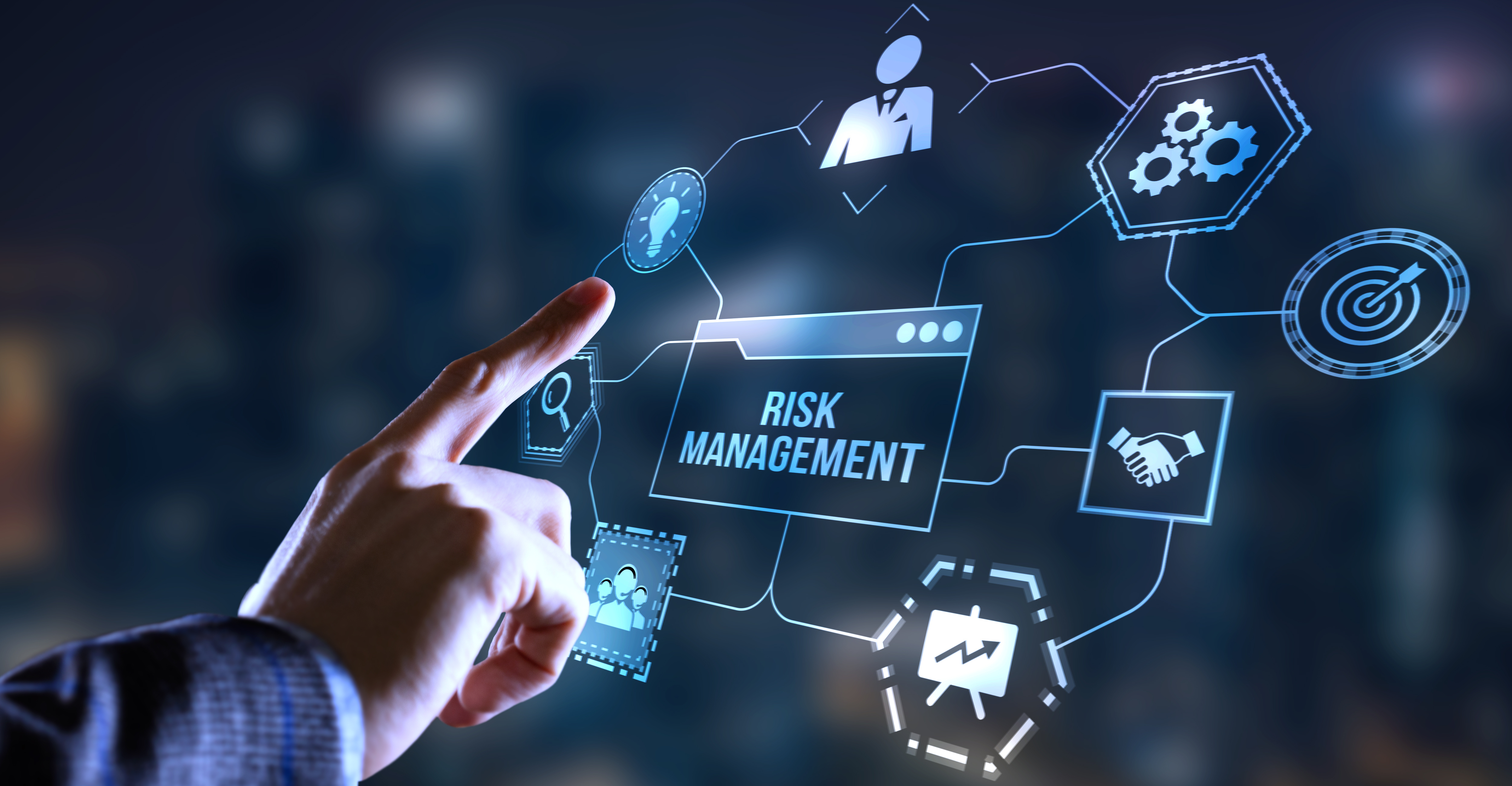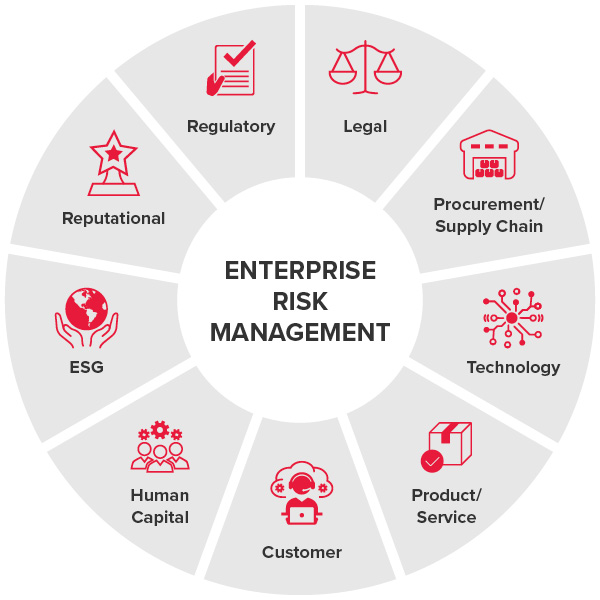Insider threats illustrate a practical approach to safeguarding assets
Explore the Duty of AI in Promoting Ethics and Stability to Battle Expert Threats Effectively
The combination of AI in business structures has actually become pivotal in dealing with expert hazards. By using advanced analytics and real-time tracking, AI systems can determine inconsistencies from ethical habits amongst staff members (Insider threats). This aggressive strategy not just enhances compliance but also fosters an atmosphere of count on. As business progressively count on these modern technologies, questions arise about their effectiveness and potential implications for workplace society. What exists in advance in the advancement of AI's duty in advertising honesty?
Recognizing Expert Dangers and Their Effect on Organizations
Companies often concentrate on exterior risks, insider threats posture a substantial danger that can undermine security and honesty. These dangers emerge from people within the organization, such as specialists or employees, who may abuse their access to delicate info for personal gain or destructive intent. The impact of expert dangers can be severe, bring about monetary losses, reputational damage, and lawful ramifications.
Aspects contributing to expert threats consist of discontentment with the work environment, lack of oversight, and poor employee training on protection procedures. Organizations often have a hard time to identify these risks, as they can be difficult to find until considerable damages has taken place. Prevention methods have to focus on cultivating a culture of count on and liability, alongside carrying out durable monitoring and reporting systems. By acknowledging and resolving the complexities of insider threats, organizations can boost their safety and security pose and protect their important possessions from inner dangers.
The Development of AI in Workplace Safety And Security
As companies increasingly face varied protection challenges, the combination of expert system (AI) in office security has developed significantly. Originally, AI applications concentrated largely on automating standard security protocols, such as access control and surveillance. Improvements in maker discovering and data analytics have transformed AI into an aggressive tool qualified of identifying prospective hazards and susceptabilities in real-time.
Organizations currently utilize AI-driven systems to assess substantial quantities of data, allowing them to identify strange behavior that might show expert risks. This evolution has actually caused the advancement of sophisticated formulas that can pick up from historical cases, improving the system's predictive capacities. In addition, AI devices are significantly utilized to streamline occurrence reaction procedures, allowing security groups to act swiftly and properly.
Exactly How AI Monitors Worker Behavior for Ethical Conformity
Expert system plays a vital role in checking employee behavior to ensure ethical conformity within organizations. AI systems assess huge amounts of data generated by workers, including interactions, purchases, and access to sensitive info. By using advanced formulas, these systems can determine deviations from established moral standards and business plans.
Artificial intelligence models constantly adjust to recognize patterns of behavior that may show ethical breaches, such as unapproved information accessibility or unusual deal tasks. Insider threats. Additionally, AI-driven devices can provide real-time informs to monitoring, facilitating timely interventions when prospective threats are detected
The integration of AI into compliance tracking not just boosts the company's capacity to promote integrity but also fosters a culture of responsibility among workers. By promoting transparency, AI systems work as a deterrent against unethical behavior, guaranteeing that staff members continue to be lined up with ethical criteria and organizational values.
Assessing Patterns: Recognizing Risky Behavior With AI
An expanding variety of companies are leveraging AI to examine patterns that may suggest dangerous behavior amongst staff members. By using sophisticated algorithms, these systems can sift through substantial quantities of data, identifying abnormalities in customer habits that might suggest potential expert dangers. AI can identify unusual access patterns to delicate information, such as staff members accessing data outside their typical extent of job or during irregular hours. Additionally, behavior analytics can highlight regular adjustments in a worker's communication design or collaboration behaviors, which may indicate underlying problems. This aggressive technique allows companies to pinpoint threat factors prior to they escalate into substantial risks. The combination of AI right into keeping track of methods not just enhances safety and security yet additionally fosters a culture of liability and ethical behavior. By determining these patterns, companies can much better understand the behavioral dynamics within their labor force, inevitably advertising a safer and much more honest workplace.
Real-Time Insights: Immediate Reactions to Possible Threats
Real-time insights through predictive analytics and automated alert systems play a crucial role in dealing with prospective risks to principles and stability. By leveraging these modern technologies, companies can prepare for high-risk behaviors and react promptly to reduce risks. This positive method improves responsibility and promotes a culture of integrity in various environments.
Predictive Analytics Applications

Automated Alert Systems
Anticipating analytics supplies a foundation for organizations to boost their responsiveness to honest issues through automated sharp systems. These systems use real-time data to monitor tasks, finding anomalies that might symbolize prospective expert dangers. By leveraging artificial intelligence formulas, automated alerts can recognize patterns of habits that differ developed norms, enabling for swift treatment. This immediacy is important in mitigating threats connected with unethical methods. Automated sharp systems can streamline interaction amongst relevant stakeholders, making certain that potential dangers are addressed quickly and properly. As organizations progressively depend on AI-driven services, the combination of automated sharp systems will play a critical duty in cultivating a culture of principles and honesty, ultimately securing business properties.
Fostering a Culture of Depend On Via AI-Driven Transparency
AI-driven openness can considerably boost depend on within companies by advertising accountability and open communication. Via real-time tracking solutions, stakeholders can acquire understandings right into procedures and decision-making, cultivating a society of integrity. Data-driven decision-making further supports this transparency, allowing notified options that line up with honest criteria.
Enhancing Openness and Responsibility
Just how can click to investigate companies properly cultivate a society of trust fund? By boosting openness and responsibility with the calculated usage of man-made knowledge. AI can assist organizations systematically track decision-making processes, ensuring that activities straighten with well-known moral criteria. This openness enables employees to see the rationale behind plans and choices, decreasing uncertainty and fostering a sense of justness. Furthermore, AI-driven tools can facilitate clear communication relating to assumptions and obligations, equipping individuals to take ownership of their activities. As responsibility becomes embedded in the business culture, staff members are a lot more likely to take part in honest behavior, recognizing their activities are monitored and reviewed. official source Eventually, this approach grows an environment where count on can prosper, considerably reducing the danger of insider hazards.
Real-Time Surveillance Solutions
As companies significantly seek to cultivate a culture of trust, real-time tracking services emerge as an essential tool in improving transparency. These AI-driven systems constantly track tasks, offering understandings into individual behavior and prospective abnormalities that may suggest expert risks. By applying such monitoring options, companies can proactively identify dangers, ensuring timely feedbacks to suspicious activities. This not just safeguards delicate information however additionally reinforces a commitment to honest techniques. The transparent nature of real-time tracking aids construct employee confidence, as individuals are conscious that their activities are being observed for the better good. Inevitably, these solutions serve to cultivate a workplace atmosphere grounded in count on, responsibility, and moral honesty, essential for reducing insider risks successfully.

Data-Driven Choice Making
Real-time monitoring options prepared for data-driven choice production, which substantially boosts business openness. By leveraging AI modern technologies, companies can examine huge quantities of data to determine patterns and anomalies a sign of possible expert dangers. This logical technique allows stakeholders to make enlightened decisions grounded in empirical proof, cultivating a society of trust fund among staff members. Openness in decision-making processes, strengthened by AI-driven insights, urges accountability and ethical actions. Additionally, it permits companies to proactively address vulnerabilities, ensuring that activities taken are warranted and communicated plainly. Because of this, the application of data-driven techniques not just alleviates dangers connected with expert dangers but additionally strengthens the values of honesty and honest conduct within the organizational structure.
Future Trends: The Duty of AI in Enhancing Work Environment Ethics
While companies progressively turn to synthetic knowledge for operational performance, the capacity of AI to boost work environment ethics is getting prominence. Future fads indicate that AI will certainly play a vital role in establishing ethical frameworks and standards, enabling companies to navigate complicated ethical problems. By assessing large quantities of data, AI can determine patterns of underhanded habits and offer understandings that advertise transparency and liability.
AI-driven tools can promote real-time monitoring of worker communications, assuring adherence to ethical requirements. This positive approach not only reduces expert hazards but also cultivates a society of honesty. As companies embrace AI technologies, they should likewise focus on moral shows and mathematical bias reduction to guarantee fairness.
In this developing landscape, the combination of AI in honest techniques represents a transformative shift, promoting an environment where integrity is not simply expected yet methodically strengthened.
Regularly Asked Questions
How Does AI Differentiate Between Benign and Malicious Actions?
AI separates in between harmful and benign activities by assessing patterns in customer actions, utilizing artificial intelligence formulas to determine abnormalities, and reviewing contextual information to determine whether activities straighten with established norms or exhibit possible hazards.
Can AI Devices Replace Human Judgment in Moral Decision-Making?
AI tools can not fully replace human judgment in ethical decision-making. While they can examine information and determine patterns, the nuanced understanding of context, worths, and ethical effects still needs human understanding and discernment.
What Are the Privacy Implications of AI Keeping Track Of Employee Actions?

How Can Organizations Ensure AI Algorithms Are Morally Made?
Organizations can ensure AI algorithms are ethically made by applying clear advancement processes, entailing varied stakeholders, conducting normal audits, and sticking to recognized ethical structures that focus on fairness, responsibility, and respect for customer privacy and rights.
What Training Is Required for Personnel to Recognize Ai's Honest Role?
Team training must encompass fundamental AI principles, information privacy, and prejudice understanding. Workshops, study, and interactive sessions can improve understanding, guaranteeing employees acknowledge AI's ethical ramifications and its role in cultivating integrity within the company.
Artificial knowledge plays an important duty in keeping track of staff member behavior to ensure moral conformity within companies. The combination of AI right into keeping an eye on methods not only boosts safety and security however additionally promotes a society of accountability and honest actions. While organizations progressively encounter ethical problems and possible integrity breaches, anticipating analytics applications supply timely insights that can assist minimize these risks. redirected here Predictive analytics supplies a structure for companies to enhance their responsiveness to honest worries via automated alert systems. Future trends suggest that AI will certainly play an essential function in establishing honest structures and standards, allowing organizations to navigate complex moral predicaments.